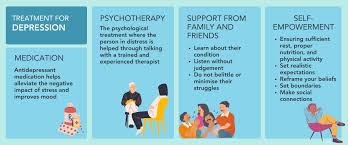Effective Stress Insomnia Remedies
Stress and insomnia often go hand in hand, creating a vicious cycle that can significantly impact your overall well-being. Finding effective remedies to address both stress and insomnia is crucial for improving your quality of life and promoting better sleep. Here are some proven strategies to help you manage stress-induced insomnia:
Establish a Relaxing Bedtime Routine
Create a soothing bedtime routine to signal to your body that it’s time to wind down. This may include activities such as reading a book, taking a warm bath, or practicing relaxation techniques like deep breathing or meditation.
Limit Screen Time Before Bed
Avoid exposure to screens (phones, tablets, computers) at least an hour before bedtime as the blue light emitted can interfere with your natural sleep-wake cycle. Instead, opt for calming activities that promote relaxation.
Practice Stress-Relief Techniques
Incorporate stress-relief techniques into your daily routine, such as yoga, mindfulness meditation, or progressive muscle relaxation. These practices can help reduce anxiety levels and promote better sleep quality.
Create a Comfortable Sleep Environment
Ensure your bedroom is conducive to sleep by keeping it dark, cool, and quiet. Invest in a comfortable mattress and pillows that support restful sleep. Consider using white noise machines or earplugs if external noises disrupt your sleep.
Try Natural Remedies
Explore natural remedies such as herbal teas (like chamomile or valerian root), aromatherapy (lavender essential oil), or supplements like melatonin under the guidance of a healthcare professional. These options may help promote relaxation and improve sleep quality.
Seek Professional Help
If stress-induced insomnia persists despite trying various remedies, consider seeking help from a healthcare provider or mental health professional. They can offer personalized treatment options tailored to your specific needs and circumstances.
By incorporating these stress insomnia remedies into your daily routine, you can take proactive steps towards managing stress levels and improving the quality of your sleep. Remember that addressing the root cause of stress is key to breaking the cycle of insomnia and restoring balance to your life.
7 Frequently Asked Questions About Remedies for Stress-Induced Insomnia
- What are the common causes of stress-induced insomnia?
- How does stress impact sleep quality?
- What are some effective relaxation techniques for managing stress-induced insomnia?
- Are there any natural remedies that can help alleviate stress and improve sleep?
- Can lifestyle changes, such as diet and exercise, play a role in reducing stress-related insomnia?
- What professional treatments or therapies are available for individuals experiencing chronic stress-induced insomnia?
- How long does it typically take to see improvements in sleep quality when implementing stress insomnia remedies?
What are the common causes of stress-induced insomnia?
Stress-induced insomnia can be triggered by a variety of common causes that disrupt the body’s natural sleep patterns. External factors such as work-related pressures, relationship issues, financial concerns, or major life changes can contribute to heightened stress levels, making it difficult to unwind and fall asleep. Internal factors like anxiety, worry, or racing thoughts can also play a significant role in disrupting sleep. Additionally, unhealthy lifestyle habits such as poor diet, lack of exercise, excessive caffeine consumption, and irregular sleep schedules can exacerbate stress-induced insomnia. Identifying and addressing these common causes is essential in effectively managing stress-related sleep disturbances and promoting better overall well-being.
How does stress impact sleep quality?
Stress can have a significant impact on sleep quality, leading to a range of sleep disturbances such as insomnia. When we experience stress, our bodies release cortisol, the primary stress hormone, which can disrupt the natural balance of neurotransmitters and hormones involved in regulating sleep. This disruption can make it difficult to fall asleep, stay asleep, or achieve restorative deep sleep stages. Additionally, stress can heighten feelings of anxiety and worry, further exacerbating sleep difficulties. Addressing stress is essential for improving sleep quality and overall well-being, as managing stress levels can help restore the body’s natural sleep patterns and promote restful, rejuvenating sleep.
What are some effective relaxation techniques for managing stress-induced insomnia?
Effective relaxation techniques play a crucial role in managing stress-induced insomnia. Some proven methods include deep breathing exercises, progressive muscle relaxation, mindfulness meditation, and guided imagery. Deep breathing helps calm the nervous system and promote relaxation, while progressive muscle relaxation involves tensing and then releasing different muscle groups to reduce physical tension. Mindfulness meditation encourages present-moment awareness and acceptance of thoughts and feelings, helping to alleviate stress and anxiety that contribute to insomnia. Guided imagery uses visualization techniques to create a peaceful mental image that can promote relaxation and improve sleep quality. Incorporating these relaxation techniques into your daily routine can help reduce stress levels, improve sleep patterns, and enhance overall well-being.
Are there any natural remedies that can help alleviate stress and improve sleep?
Many individuals seek natural remedies to alleviate stress and improve sleep quality, especially when dealing with stress-induced insomnia. Natural remedies such as herbal teas like chamomile or valerian root, aromatherapy using lavender essential oil, and supplements like melatonin are popular choices for promoting relaxation and enhancing sleep. These natural options are often preferred for their gentle effects and minimal side effects compared to pharmaceutical interventions. It’s important to consult with a healthcare professional before trying any new natural remedies to ensure they are safe and suitable for your individual needs.
Can lifestyle changes, such as diet and exercise, play a role in reducing stress-related insomnia?
Lifestyle changes, including modifications to diet and exercise routines, can indeed play a significant role in reducing stress-related insomnia. A balanced diet rich in nutrients can support overall health and promote better sleep quality. Incorporating regular physical activity into your routine not only helps manage stress levels but also contributes to a more restful night’s sleep. Exercise releases endorphins, which are known to improve mood and reduce anxiety, ultimately aiding in combating stress-induced insomnia. By adopting healthy lifestyle habits that prioritize nutrition and physical activity, individuals can positively impact their sleep patterns and overall well-being.
What professional treatments or therapies are available for individuals experiencing chronic stress-induced insomnia?
For individuals experiencing chronic stress-induced insomnia, there are several professional treatments and therapies available to help manage their condition effectively. One common approach is cognitive behavioral therapy for insomnia (CBT-I), a structured program that addresses the underlying causes of sleep disturbances and teaches techniques to improve sleep habits and patterns. Another option is medication prescribed by a healthcare provider, such as sedatives or sleep aids, to help regulate sleep cycles and promote restful sleep. Additionally, mindfulness-based stress reduction (MBSR) programs or relaxation therapies like biofeedback can be beneficial in reducing stress levels and promoting relaxation, ultimately improving sleep quality for those dealing with chronic stress-induced insomnia. Consulting with a healthcare provider or mental health professional can help individuals explore these treatment options and find the most suitable approach for their specific needs.
How long does it typically take to see improvements in sleep quality when implementing stress insomnia remedies?
When implementing stress insomnia remedies, the time it takes to see improvements in sleep quality can vary from person to person. Some individuals may experience noticeable changes within a few days or weeks of adopting stress-relief techniques and creating a relaxing bedtime routine. However, for others, it may take longer to see significant improvements in sleep quality. Consistency and patience are key when addressing stress-induced insomnia, as establishing new habits and allowing your body and mind to adjust to these changes can influence the timeline for seeing positive results in your sleep patterns. It’s essential to stay committed to your chosen remedies and give them time to work effectively in promoting better sleep and overall well-being.




